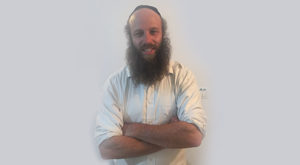Family Matters

It’s hard to have family around in those situations

T
ough question that doctors face every day: When do you allow family to witness care, and when do you ask them to leave? A laceration — sure, they can stay and count the stitches. But what about a patient who’s not breathing or has no heartbeat or who requires acute care? Where’s the family’s place then — in or out?
These are not the answers they teach you in medical school.
Sometimes the answer depends on the treatment. A laceration — no problem, you’re welcome to stay. We numb the area and stitch it up quickly and no one gets too worked up. (Except for one tall, strapping guy who passed out when I started stitching up his son.)
A kid with a broken bone is another story. If the bone needs to be reduced so the pieces are properly placed for healing, I send the parents out. We sedate the child, and I let the parents stay until the child is asleep, but then they need to leave. Besides for the danger of radiation from the X-rays, it’s just too gory. There’s no nice way to reduce a broken bone. I do the tough work when they’re not there because the optics are too frightening.
But it’s not always so clear.
Michael was 35 years old, a young husband and father. His airway was closing and he needed a tube placed in his trachea to allow him to continue breathing. His wife was there and his parents were there, and they were scared.
I was worried too. It didn’t look good, and we didn’t know how this was going to end.
On the one hand, it’s tremendously reassuring for family members to witness their loved ones getting care. They see us there, see us working, see that we really tried everything possible. If G-d forbid there is a tragic outcome, they have a certain knowledge that we did everything we could.
On the other hand, things can get dicey in the ER, and when that happens, the last thing you want is to have to manage extra people who are panicking.
In this case I was spared the decision — Michael’s wife and parents stepped out of the room as soon as we began working. The intubation went well, and even before the airway was fully secured, I told the nurse to call the family back in.
“But we’re not done yet,” she protested.
“They’re so worried!” I told her. “Just call them back in so they can see he’s okay!”
Sometimes I give the family a choice. Daniella’s husband was brought in via ambulance with an irregular heartbeat. The treatment protocol in this case called for cardioversion: We put electric paddles on his chest to shock his heart back into sinus rhythm. Cardioversion is fairly standard and relatively safe, but it doesn’t look pretty, and both the patient, Mark, and his wife, Daniella, were pretty nervous.
“Do you want to stay?” I asked Daniella. “We’re going to put him to sleep, we’re going to put those paddles on his chest, he’s going to jump like you see in the movies. Can you handle it?”
Daniella hesitated. “I think I would feel more comfortable if I stayed,” she said finally.
I said okay. “But only if you sit. I would rather not have another patient to take care of if you faint.”
The cardioversion worked, and Mark was fine. Daniella thanked me a thousand times. All I did was a standard cardioversion — no chiddushim, no drama. But it was a positive experience for her; she got to see that he was receiving the best care.
All this brings us to the 64 million dollar question: Should families witness resuscitation? When the patient comes in not breathing, no heartbeat, and we’re trying to bring them back to life — should you allow the family to be there?
There’s a lot of debate about this in the medical literature. The consensus seems to be that it’s beneficial for the families, especially in pediatrics. It reassures them. They get to see you’re working hard. Even if it doesn’t work, and the story ends in the worst way, it gives them closure. They get to see that you tried everything. They know that they tried everything.
But it’s tough on us doctors.
One late night shift I got a call from EMS that they were bringing in a 68-year-old man in cardiac arrest. Ron had been totally fine, walking around preparing for bed, when his wife, Cindy, heard a thud. She rushed into the room and found him lying on the floor. His heart had stopped.
EMS worked valiantly — epi, shocks, CPR; you name it, they tried it. Thirty minutes later they brought him to the ER. I put an ultrasound on the heart — no activity. No shockable rhythm. We gave him some more epi as a last ditch effort—and we got a pulse. We started pressors to maintain blood pressure, applied ice packs and started infusing saline.
I went to update the family. “He was down for a while,” I admitted, “but it’s not our job to prognosticate. That’s for G-d.”
“Will he—” Cindy began, but she was interrupted by the nurse.
“Blood pressure dropping!”
I ran back in, there was no pulse. We started CPR. But even if we got a pulse back with epi, the scenario was likely to just repeat itself once the epi wore off. The bitter truth was that further resuscitation was probably futile.
At that point I asked the family if they wanted to come back in. It was a tough offer to make, and a tougher choice to take. There was a lot going on in that little room.
Cindy lasted for two minutes, then stepped back out. Their daughter Lisa stayed a little longer.
But when the time came to admit defeat, it was that much easier for them to accept.
It’s hard to have family around in those situations. It’s easier to ship them out to the waiting area so we can do what we need to do without tripping over extra people. But the suspense, the not-knowing, is worse than watching the attempt fail. So even though it’s hard on the medical staff, our team rises to the occasion. It’s important that the family sees us trying.
Because the truth is that family belongs in the ER. Their presence calms the patient. The family should be involved, ask questions and be supportive. They should advocate for the patient (without being overbearing). It will assure the best outcome for the patient.
As doctors, we don’t only care for patients in the ER. We also care for the patient’s family.
All names and identifying details have been changed. Patient profiles may be based on composite cases.
(Originally featured in Mishpacha, Issue 765)
Oops! We could not locate your form.





